What Happens 72 Hours After Disasters
Today, please think about what may happen in the first 72 hours after a severe storm, other natural disasters, or unforeseen emergencies occur where you live. Here’s the deal: I want you to picture life in 24-hour increments initially. Then, you can deal with long-term issues and apply the best response options. You must consider these things BEFORE any disaster strikes, or it could be too late to protect your family.
I’ve broken down the three 24-hour sections below so you can picture what will most likely happen within 72 hours after any disaster in any city, county, state, or country. It’s plain and simple: let’s get started.
If you can get together with your neighbors to purchase walkie-talkies, set them on the same channel, and test them monthly, you’ll be ahead of most families and neighborhoods. The old walkie-talkies we used at Disneyland years ago no longer cut it.
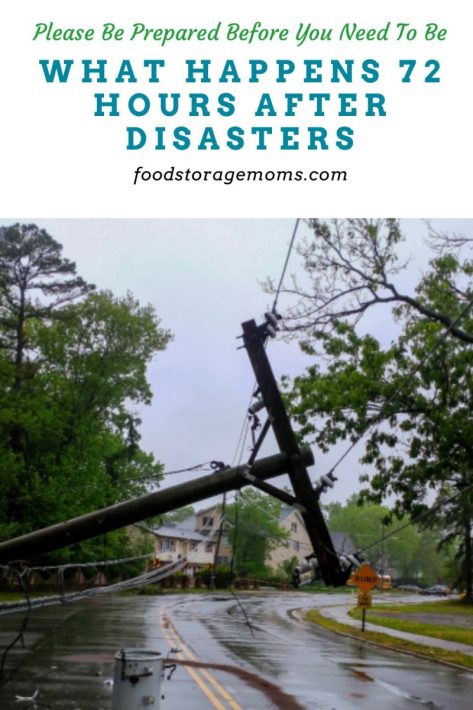
Some walkie-talkies may not be usable because they won’t transmit through blocks of houses or other obstructions. This is the brand an emergency search and rescue expert recommended to a class I taught a few years ago: Walkie-Talkies. You may remember, that I just moved into my tiny home. I have the walkie-talkies but will not be using them. I don’t know many people where I live, so I will be bugging in, which has been my plan for most emergencies.
72 Hours After Disasters
1. The First 24 Hours
The first sign may be a loud noise, like a hurricane or tornado, or it could be tranquil with an earthquake. The lights may go off, or the furnace or AC goes off abruptly. If it’s during the day when you lose power, it may not be as disturbing as it would be at dusk or later. The sun has just gone behind the mountains, and it’s getting dark outside and in your house.
We’ll check with neighbors to see who is okay or hurt and if they need help. If the disaster is big enough, we’ll have limited county or city officials to help the entire area in the short term. Government agency support probably won’t happen early on since they only have so many resources. This is where prepping comes in; we must be ready to care for ourselves in many ways.
I’m talking about water, food, shelter, first aid kits, personal medical supplies, tools, cooking devices with the related pots and pans, etc. The most likely situation is that we’ll lose electricity. If we use gas to heat our homes, that will probably not be available, and you may have to turn off the gas to your home. To circulate the air in your home, whether hot or cold, you still need a fan that runs on electricity.
Water Supply
If you think you’ll be able to turn on the water faucet and get clean water like always, think again: the water supply may have been cut off or is now contaminated. You’ll need ways to boil water, treat it with chemicals, or use a filtration system.
Sewer Lines
The sewer lines will most likely not work either, in the case of an earthquake or damage to the local sewer pumping facility. If you don’t have a portable toilet, you better get one this week—not next week.
I don’t plan to share my portable toilet with anyone. I know it sounds selfish, but I want my neighbors to know that that is one prepper item I don’t plan to pass around, and I’ll deal only with my human waste issues. This is one of many disaster scenarios I don’t look forward to at all.
I hope they have a good shovel to dig a hole for their toilet, just saying. Here is a post I wrote regarding this issue and how to deal with it: Emergency Toilet For After A Disaster by Food Storage Moms. These are cheap and everyone should have their own emergency toilet or some black garbage bags, kitty litter, and duct tape to use inside their home toilets. Having enough toilet paper available is also critical.
2. The Second 24 Hours
Some people have gone through their water bottles, emptied their food pantry or freezer, and eaten whatever they have available. Remember, when it comes to your plan to store water, every family member needs at least one gallon of water per person per day, according to the American Red Cross.
I’m afraid I have to disagree, but I’m sure you know by now that I recommend four gallons of water per person daily. One gallon is insufficient for hydration, cooking, minimal clothes washing, or personal hygiene care. You’ll want some baby wipes for what I call spit baths. This is the day you hope you were caught up on the laundry.
Water stored in containers or large tanks is essential to any disaster plan, no matter the circumstances.
If not, you’ll at least want clean underwear. Here is my post about an emergency washing machine: Emergency Washing Machine by Food Storage Moms.
Of course, you can use a sink or washtub as well. However, you shouldn’t just plan on using the bathtub because, first, the water lines might be cut, and second, if you try to drain the water, the sewer lines might back up into your house.
3. The Third 24 Hours Will Not Be Fun
Do you know those BLACK FRIDAY sales that happen after Thanksgiving? Well, after a disaster, if the roads are driveable, the grocery stores will have lines out the door due to water and food rationing.
Trust me, I will NOT be in any grocery store after a disaster. I don’t do Black Friday sales either, and I don’t like the pushing and shoving at the stores.
Man, think how the crowds will be looking for water and food. YIKES! Utah, where I live, is ranked #4 for states with personal gun ownership. People get mean when they are hungry or thirsty and they need to feed their families.
It’s just something to think about. The grocery store shelves will be empty, or a water bottle could cost more than you can imagine. The stores may not have change for your bills, so exact dollar amounts will be needed. Who knows, their point-of-sale registers might not even work. I’ve always suggested to my readers that they need to have a stash of small bills available for shopping right after a disaster strikes.
One Major Decision You May Face During and After a Disaster
Things may turn ugly for you during the first 72 hours of a disaster. You will need to decide whether to stay in your home and bug in, evacuate, or bug out. You can’t follow a “rule of thumb” when making this decision.
Sometimes, the decision is made for you when you are directed by local authorities to evacuate. In essence, you are being told that your home or personal safety is at risk, and you’re facing one of those worst-case scenarios where you’re better off leaving. Hopefully, it won’t be for an extended period, but you never know. In most cases, it won’t be the long-term solution unless your home is destroyed, complete with debris, or beyond repair.
Some stay-at-home issues change if you have to evacuate with the kids. That might include leaving your stored food supply, water storage, some survival supplies, and other things available to you at home. You should be able to take some needed items like blankets, firearms, radios, means of communication like cell phones, extra clothing, and more. Please note: at my age, I will not leave my home.
If you are directed to leave home, you need to either go to a designated location or another family or friend’s home so that you have essential services available to you. You want to count you and your family as survivors after it’s all said and done. You’d like to stay home and enjoy that fireplace or wood stove, home-cooked meals, and bed. But if it’s deemed an actual survival situation, hit the road and make the most of it.
When you get situated, take some things to occupy your free time, like board games, reading books, or coloring books for the little ones.
Before A Disaster, Some People May Think:
1. Why do I keep hearing, “Get prepared, be prepared, and are you prepared?”
2. Sometimes, people may think nothing will happen to me or my location.
3. The government will have to step in and help us, that’s what FEMA is for.
4. God, or whoever you pray to, will care for you.
5. I can’t afford to buy extra water or food.
6. I can’t afford other preparedness items.
7. I don’t have time to learn survival skills.
8. My neighbor is prepared; I’ll go over there.
9. My house is too small to store anything extra.
My Favorite Bartering Items For After Disasters:
1. Safety Protection Supplies
2. Drinks
3. Cigars (do not store cigarettes-they go bad)
4. After a disaster, coffee drinkers barter for instant coffee (Starbucks might not be open).
5. The food you grow in your garden (get heirloom seeds you can keep planting year after year if you save the seeds).
6. Basic staples you have stored like flour, sugar, honey, oil, baking powder, baking soda, and spices.
7. Skills like bread making, learning to make biscuits and crackers.
8. Skills- handyman stuff.
9. Skills- quilting and sewing will help us mend clothes or make necessary clothes.
10. First aid supplies.
11. Chickens and eggs (as long as you have the food to feed them).
12. Meat (grass-fed or grass-finished animals will be a premium).
13. The skill of hunting for animals to eat (learn how to preserve them).
14. Trading canned food items (you must know how to can and preserve your garden products).
15. Water and food (be sure to have a way to purify your water). If you hear about an anticipated water problem, turn off the water on your water heater before the water becomes contaminated.
16. Fuel for car and cooking.
17. Learn to make your own kitchen soap and laundry detergent.
18. Lemonade mix, hot chocolate mix, or good old sugary Tang, if they still sell it (these will make water taste better).
19. Cooking oil of any kind will be sought after.
20. Cooking devices for outside cooking with fuel, like a camp stove using propane or butane.
21. Flashlights, lanterns, and extra batteries.
22. Buckets or all types of uses.
23. Matches and Lighters.
24. Magnifying Glass or
26. Katadyne Filter
27. 50 Foot Paracord
28. Buck Pathfinder
I’m not saying run out and buy everything on this list. We’ll all need the skills to help each other. We must all be able to bring something to the table to help one another. We are responsible for ourselves; no one else will care for us.
If and when our economy crashes, you may not have that Social Security check, retirement check, paycheck, or pension check in the mail or deposited. Who knows what banks or businesses could be affected by the disaster?
People keep telling us to pay off our houses, pay cash for cars, stay out of debt, and be prepared for the unexpected. Have some money, precious metals, and things to barter as your finances allow. It’s human nature to think that disasters only happen to others living elsewhere.
If that is your approach to self-sufficiency up to this point, think again. Disasters can come our way in many forms, like getting sick and unable to work, losing your job due to layoffs, or company closures. Accidents happen, whether in your car or at home doing projects.
You may have the best plans to make your home safe and secure, but your neighbor may have a fire disaster just waiting to happen by storing dangerous fuels in the garage or on the side of their house. If their home goes up in smoke, yours may be next based on wind and ashes.
I read an article this week about a drunk driver who drove through the front of a home, nearly killing the occupants. They were lucky the car didn’t burst into flames. You may think that disasters only come from floods, tornados, hurricanes, earthquakes, and other causes we call Mother Nature. Disasters and emergencies come in many forms and at any time, so try to be self-reliant and be as prepared as possible.
Final Word
Sure, we need to think of these items and issues to be prepared, but the surprise events outlined above often bring the most heartache and challenges to families. Do your homework and be as prepared as your time and finances allow. You’ll be glad you did, as will those living with and nearby. May God bless you and your family and give them the means to be prepared for the unexpected one step at a time. May God Bless this world, Linda
Copyright Images: Flooded Roadway AdobeStock_112079131 By Eugene F, Hurricane Flooded Area In Florida AdobeStock_759867330 By Bilanol, Hurricane With Tree Falling Power LinesAdobeStock_205462637 By Ungvar

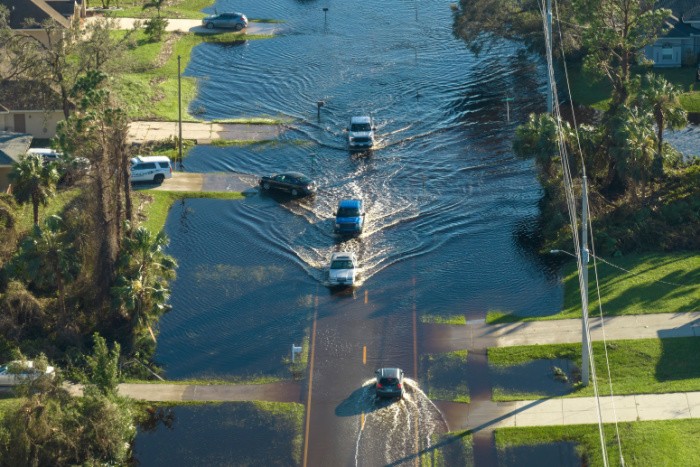



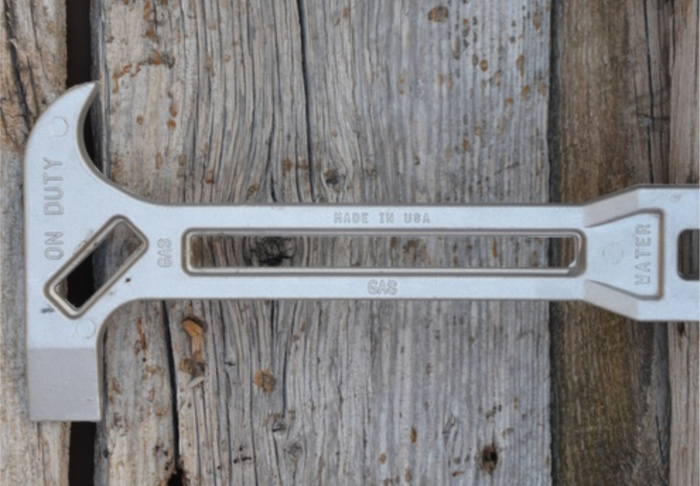
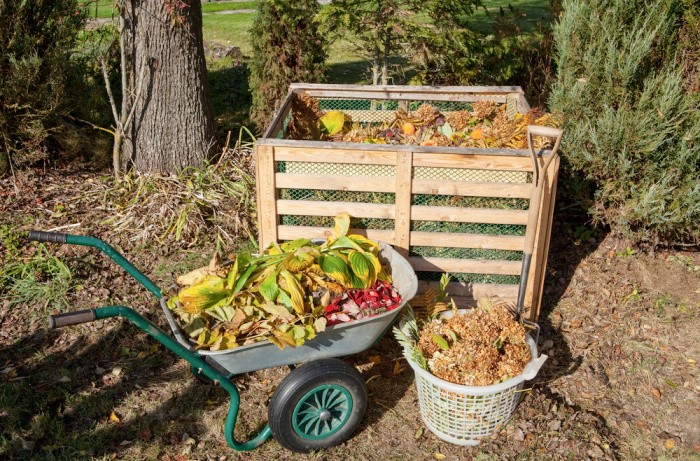
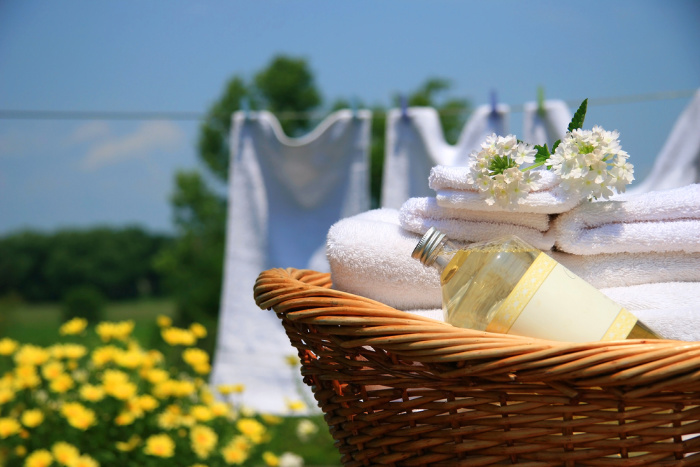














Hi my friends,
Just a friendly note here…
Cigarettes don’t really expire, they go stale. When a cigarette goes stale it has lost its moisture in the tobacco and tastes off. Commercial cigarettes usually don’t go stale unless the pack has been opened and it usually takes about 2 days.
A lot of smaller retailers will have a pack on the shelf for years before they are sold. Customers don’t even know and the cigarette does not taste stale.
If your cigarettes do go stale you can “revitalise” them by placing them in a container with a slice of bread. Although if you only have a small amount of cigarettes in the container it could get too moist. If they do get too moist leave them out for a few hours to dry. With enough practice you will figure out if your cigarettes are stale just by feeling the cigarette. And you will be able to feel if it is too moist or just right.
If tobacco is too moist for too long it can mould. Although if you are smoking commercial cigarettes they tend not to mould because they are already rolled. Mould is usually a problem for people who roll their own cigarettes. And usually only happens when it is very humid and the tobacco is improperly stored. (Not in a sealed container).
I hope this helps.
Hi David, great comment, thanks so much for sharing your knowledge on cigarettes! Linda
David ~
I have also vacuum sealed cigarettes. That keeps them “fresh” much longer. I don’t really have a problem with my cigarettes but when I go on a long camping trip during the hot summer months, I want “fresh” smokes.
Linda ~
As for stale/dry cigarettes/cigars/tobacco of any kind for barter, I believe that if someone smokes/chews, they will not really care if the tobacco is stale. A smoke is a smoke!
I am trying to quit!!
True..true. Very good point!
When I go on short outings or vacations, I like to take those little flavoured cigars. Great with a glass of wine 🙂
Haha, you are the only person other than my mother who calls those “spit baths” that I’ve come across.
Linda S ~
I have always called them “spit baths”!
When I go camping, I always have soap and water, baby wipes, etc., for spit baths!
Hi Linda, oh my gosh, now I have the giggles! Linda
Linda, I just want to say thank you for print feature you added a few months ago. I’ve printed almost every post and added to a three ring binder stored by your book. I highly doubt I’d be able to think clearly under high duress. Knowing I have all this printed material to lean on means a great deal to me. Keep up the great work! Beth
Hi Beth, oh I’m so glad you like the PRINT button. I have always had it but somehow when I had my new website done, I forgot it and a reader reminded me to put it back. The next day it was ready to print. I’m like you I feel under duress everything we have printed or in print form the better. Great comment, Linda
Great article Linda, and very good advice. In 2017 Hurricane Erma hit Florida, i live in Highlands County, a tornado followed the storm in my area, 95 % of Highlands County residents were out of power, some for weeks. We had a good supply of food, and i had 100 gal of gas for my generator that ran my entire home including the well. I ran the generator only when needed because i was using the gas in my chainsaw also, clearing trees that had blown over.
We cooked for our neighbors and supplied them with water, after 3 weeks power was restored. All was well. BUT we all know in a total economic/government collapse that i think we are headed for, no matter how much you have stored, it will eventually run out. That is why, like you have said, we need to learn to survive as the pioneers did. I was raised on a farm, we were not wealthy by any means, poor would a better word, but we new how to live, grow food, store food, make clothes, and help others. We are all in this together, survival in numbers.
I don`t know anyone else that is doing a better job of educating people how to prepare and to survive then you are doing, i hope they learn something for your articles, it`s for their benefit.
Thanks for all you do….
Hi Hearl, you made tears come to my eyes, you are so kind with your words. I work so hard to get the word out to people. Your comment means so much to me. I grew up poor, so I totally know what you are talking about because you and I and can survive with a garden and even sew my clothes. I just hope we can get the word out to everyone and they will listen. May God bless this world. Linda
Hey Linda and merry Christmas. This might not be for alot of people but years ago I got the chance to meet with this lady that smoked red clover. This was years ago I was only in my 20s and during the depression she grew and smoked red clover. She said it’s not tobacco but when tobacco was not on the table to buy all money went to food it was great to have she even bartered red clover. I have grew some and smoked some myself I will agree I rather have a cigarette but as any smoker knows when you need a cigarette you get pretty desperate. I have a patch on my property where it reseeds its self and have just in case. Just thought I’d let you and anyone else know. it’s always good to know how people got threw the depression
HI Renee, that’s quite the story! Where’s a will there is always a way! Thank you for sharing, Linda
I would also like to thank you for the Print feature. I print a lot of your articles for reference also.
Next, thank you for the video and recipe for homemade laundry soap. I made a batch and love it! In fact I am sharing it with my emergency prep group, and everyone is making a batch to take home!
And lastly, I have the” buckets for toilets”, but am considering also getting a chair toilet like they have in hospitals. One reason is they are not so low to the ground (bad knees), they are portable like the buckets, and can be washed out often so the smell might be easier to control. Just a thought.
Hi Cheryl, this is funny that you would mention the chair toilet like the hospitals. I have been thinking the same thing! I applaud you for sharing your tips on making detergent to save money with your emergency prep group! I LOVE that! I’m so glad you like the print button because I want my readers to print out and share all the tips they can use. May God bless you, Linda
Linda ~
I love your posts! Always see them as a way to keep me informed and I pick up new info regularly.
It concerns me that so many people believe that the government – local and national – will be there for them and keep them safe, warm, fed and watered! Sounds like they are pets!!
One thing that I would like people to know is that preparing: food, water, skills; is a form of insurance, just like auto/home/life insurance. There when we need it. It always feels good when I can go shopping in my closet, under my bed rather than running out to the store to overspend!!
A good example of this happened last night. It was NOT an emergency BUT, I had not received my Social Security check (came today) and money was a bit tight. I needed to take a side dish to my church leadership meeting. The church provides the main dish but we all take sides/desserts. Well, I scanned my preps trying to come up with something that would not “cost” me a trip to the store with little or no cash in the bank account! I have cash at home but I did not consider spending it for this purpose. I had eggs, which are relatively inexpensive in the grand scheme of things so I made deviled eggs to take. No money outlaid! I didn’t have to spend my little bit of money and I didn’t need to use my food storage.
Oh, Leanne, great ideas to take the deviled eggs! I LOVE it! You and I are so much alike and we have never met in person! Awesome comment girlfriend! Linda
I like that you cover all your bases providing for all possible needs and you relate that to others. My family has been lucky that we’ve experienced some annoyance and frustration in the form of boredom mostly, but we have never been hurt or had our house badly damaged.
Last time, when Irma hit us, my brother passed the time doing crossword puzzle and word find books while listening to his little emergency radio. Those few things helped us pass the time until power was restored. We had enough water to stay refreshed and we had a wall unit air conditioner and a generator, so we didn’t have to suffer the heat the entire time. Still it was tiresome and I even sat in my car with my brother and our two dogs just to cool off. And we would have benefited from more snacks and cool drinks. Our father cooked and we ran the fridge on and off, but we had to keep it shut to preserve our food as best as we could.
So despite our managing all these years, I said to myself that not only were we smart to prepare, but we can do more and we can do better. This year has just started, but I will prepare early and emphasize that this should be a priority in our house. What’s the point of being a prepper/survivalist buying gear and learning skills and not being prepared. 🙂
Hi Frank, you always have great comments! As I’m reading your comment, and I can tell you took control of the situation by playing games and sitting in the car to get cooled off. As a country, we take so many things for granted and it’s actually good that we have a few “learning curves” along the way to make us realize we can do better as you mentioned. BUT the good thing is that we are resourceful!! We can make it through anything my friend, Linda
Frank, P.S. Glad you mentioned more snacks and cool drinks. Linda
Good stuff
So much information in a short-ish post. Thank you so much. I do have a question though. How do you get a spouse on board for prepping? My husband thinks I’m silly for prepping.
Hi Deborah, that’s a very good question. I must say he is not into prepping like I am. He supports me in all that I do. I have taught classes on food storage and emergency prep all over Utah in subdivisions, government entities, food storage stores, and various churches for over 30 years. I think with Mark, he sees the need but he does more civic work than I do. I support him in that part of his life. It’s a win-win for both of us. It may take a disaster for your husband to “get it”. My husband understands the urgency I feel maybe because back in 1983 our city was flooded and we helped move furniture and stuff out of many many flooded homes from the water coming down the hill. Prepping is not silly. I’m so sorry he sees it that way. I bet there are others that feel that way too, which is really too bad. It’s very frustrating to me in the neighborhood I live in. They think prepping is not necessary. They’ll be in for a rude awakening sooner than later. Do whatever you can to keep the peace in your family but keep prepping however you can. May God bless you Deborah, Linda
I’m planning on it. The main thing he objects to is water storage. LOL I am in the process of storing water. We do have a 7 stage water filter on our kitchen faucet that I’m planning on using for water storage. Hubby drinks 2-liter soft drinks, so, I’m planning on using these for water storage. In a closet that’s rarely opened. The guest room closet.
Hi Deborah, it’s so funny you mentioned water storage. A year and a half ago, I bought a large capacity water tank to store water in my garage. When the company delivered it, it looked so much bigger than it did at the store. I was afraid it wouldn’t go into my garage!! Oh my gosh, I still laugh about that. Yes, it did fit, but just barely. Water is critical! Linda
Oh so true! We need water! For drinking, cooking, batheing and washing clothes. Plus bathrooms sometimes need water. I’m wanting to store about 4 gallons per day times 2 people. For three would better. Or at least 3 days or more.
Hi Deborah, way to go girl! I love it! Linda
Thank you. Another thing you will need is a land-line to use when the cellphones don’t work. We have both just in case be sure.
Hi Cheryl, I kept a landline for years. Then I had to cut expenses and the landline had to go. Sometimes I think I wish I still had it, but….it’s all about the numbers. That’s the phrase I use when I taught people how to budget in my career for 30 years. Now after having used that phrase with my kids, I teach my grandkids, “it’s all about the numbers”. When they talk about schooling, clothing, saving money, renting an apartment, etc. Stay safe, Linda
The reason I mentioned haveing a land line is that recently a friend of mine had a lot of trouble with her cell line and deciden to get her land line back. Good thing she did because a few days later her husband had a medical emergency and it was the only way she could call 911. Sometimes we never know why we decide to dow what we do.
Hi Cheryl, that’s scary! It’s funny a company called “Sure Call” contacted me to see if they could give me a system to boost my cell phone service. I used to have to sit on my coffee table to talk to people on my cell phone. I wrote about the unit they installed in my attic and outside. It’s awesome, but sometimes I still wonder about getting a landline. Luckily two blocks from my home is a fire station. Life is crazy right now, Linda
Good for you to find this. Unfortunately we live in the country . That makes it a good thing to have both. We do, just in case.
Thank you and have a good day.
Hi Linda! You know if we can our foods, we can add a jar or two of water to our canners to fill the canned up, and can water. I really like this idea. Hat do you think?
HI Deborah, I would do it! We need what ever water we can get! Linda
I’ll be doing this as well. We have quite a few of empty jars. Some are even new. Yes, I’m a mason jar hoarder. LOL I take after my grandmother and my dear departed MIL.
Hi Deborah, being a mason jar hoarder is a blessing in my book! I love hearing this! Linda
About land lines– many places, including our small town, have changed the land lines so that you have to have a modem for the phone to work. This means without a battery backup or a generator– you have no phone service!!! I think that was one of the most cruel things they have done. Now you cannot call for help when you need it most. A funny aside, I remember using the phone receiver as a flashlight as a kid when the power was out, but it only reached as far as the curly cord would stretch 😉
Hi Jan, oh my gosh, the curly cord, boy do I remember those gems! Yes, unless it’s hard-wired there is no such thing as a landline at least where I live. Our internet goes out all the time, more than it should but, it is what it is. It’s hard writing a blog with intermittent internet let alone making an emergency phone call! Linda
I’m reading this after our power just came on again after a 3 hour outage due to a crazy snow storm. I got up to feed the wood stove in the dark, flicked the switch, no light. No problem. I keep a headlamp on the bedside table at all times and my offgrid lights are stored in a basket below. First thing to do after feeding the stove was put the kettle and a big canning pot of water on the woodstove to take care of morning beverages and washups. Since you never know how long the power will be out I just assume it’s time to flip into no electricity mode right away. This time it was back on in 3 1/2 hours but the last one was a few days. I have my granddaughter and her friends visiting and they slept right through the whole thing. They had already decided on an “oatmeal bar” for breakfast (like a salad bar with different toppings set out) so that would be easy without even getting out the emergency propane stove. I made a few notes on what would be nice to have for next time but overall it was a simple process to deal with because I not only had the necessary equipment but it was easy to access, not stuffed in a box at the back of the closet or out in a garage. As soon as the power comes on again I recharge everything right away to make sure all lights and power backups are fully charged for next time.
HI Alice, I love this comment! You were prepared from the get-go! I like the “oatmeal bar”, having grandkids is the best thing ever! Linda
Thanks for the reminder. That storm is coming my way. I need to charge that.
Hi Janet, we are all charging stuff right now!! Love it! Linda
That storm is supposed to start here Thursday straight thru Sunday. The girls are already texting about changing our celebration to Monday or Tuesday if necessary. We have one more curbside pickup tomorrow, then I am set if we have to shelter in place for the next two months. Go ahead Mother Nature…..I’m ready for you!!!!!
A Blessed Merry Christmas
Hi Chris, I feel exactly the same as you do! Come on Mother Nature, we need the rain or the snow! Let’s all have a wonderful holiday however we celebrate it, it will be wonderful! Linda
Wonderful article, Linda. I’m a certified Hunter Safety Instructor and one of the first things we teach is to stop and assess the situation, especially if you’re lost (happens more than you think). When reading this article, that’s the first thing that came to my mind…stop and assess your person situation. Even better than that is to be prepared in the first place! I know where all my stuff is at, have flashlights in every room, sometimes more than one, and can access almost anything. I wish Santa would bring me a generator but that’s not gonna happen, unfortunately. I watch/read all I can on “survivor” stories and it’s amazing what a person can learn from them. Some stuff scares the heck outta me (because I know it’s true) and other stuff is pure Hollywood. I can only hope and pray that we will be able to bug in; we’re pretty well set for that. It’s having to leave that scares me so much. We’re really lucky we have a woodstove. They’re not allowed in Washoe County unless you have an acre or more or it’s your only heat source. We were grandfathered in when we built out house. We’ve got about 5-7 cords of wood stored but we’ll need a machine gun to protect it from thieves, etc. I’ve rehearsed all sorts of scenarios so I surely hope we’re prepared enough. That being said, there is always room for learning more things from you and the posters…it’s a wonderful wealth of information on this site!
Hi Robbie, we can both wish for a generator for Christmas, yeah it’s not going to happen here at my house either! LOL! You are so lucky to have a wood-burning stove, now that’s a blessing you were grandfathered in! I love it! We have to be grateful for what we do have and you and I are for sure! 5-7 cords of wood stacked is awesome! Yay! Thank you for your kind words, Linda
Linda,
This is one of your best posts ever and the comments it generated were excellent and informative as well.
Those Midland walkie talkies you linked to are very good. I’ve had a pair for years. One word of caution though, do not keep them plugged in to their chargers for any longer than to charge them. I ruined a pair of them by doing that–was away for two weeks and forget they were being charged.
Even those of us who plan to bug in should keep a bug out bag if for no other reason than insurance against a mandatory evacuation order. When we lived in the mountains of Colorado we had to evacuate a couple of times due to wildfires. Those bug out bags were gold. And when we lived there my bug out bag was a fully loaded, full size backpack I’d throw in the trunk whenever we went anywhere. You never knew when a rockslide or avalanche would block a road and mess up your plans.
Aside from the things you mentioned, I’d add matches and lighters (and a few other ways to start a fire, like a firesteel or magnifying glass, and good quality space blankets. The ones I use are not the flimsy, tissue thin ones–though those are far better than nothing. I always have a pair of Grabber Outdoor Emergency Blankets in my bug out/get home bags. They are like the thin Mylar space blankets you may have heard about but on steroids. They are much thicker and tougher. The reason I carry two is so I can rig one as a tarp/shelter or ground cloth and wrap one around Jane and I to keep us warm. Again they have grommets so I can use some paracord to convert them into everything from an “A” frame tent to a lean-to. (A fifty-foot roll of Paracord has a permanent home in each of my Get Home Bags). And I still carry a couple of the old-style, cheap, lightweight Mylar space blankets. They fold up credit card sized and weigh just a few ounces. That way if I have to use both my Grabber blankets to form a shelter I’ll still have the lightweight Mylar blanket to wrap us in.
And when it comes to water, please get either a SurvivorFilter, Lifestraw, Sawyer, Katadyne or other good quality portable water filter and keep it in your bug out/get home bag. You can only store so much water in a pack and you can use those filters to make Lake or River water safe to drink without having to boil it.
Food: I recently added a pair of Heater Meals (self-heating MRE’s) to my bags, but the main food I take with me in them is Gorp and hard candies.
What the heck is Gorp? Gorp is a shelf-stable, high carb, high calorie food that can be kept in baggies, or jars. It can be vacuum sealed and frozen or left out at room temperature. Once mixed, Gorp requires no preparation, making it the practically perfect survival food. Its only drawback is that it doesn’t last very long, especially around children, (or me) because it’s totally yummy.
Gorp is a mixture of chocolate, dried fruit and nuts. You mix it up yourself, using whatever types of those things you like most. It is the basis for all modern trail mixes.
My basic “recipe” called for plain M&M’s, raisins, and peanuts, with roughly half again as much of raisins and peanuts as M&M’s. I would later add hulled sunflower seeds, cashews, pecans, almonds, macadamias, dried pineapple, apple and bananas. (I’m drooling just thinking about it.) I’ve since started substituting M&M Peanuts for the plain M&M’s and Craisins for the raisins. I am soooo bad.
Personal protection: Firearms are great but carrying one (unless you live in an open carry State like Arizona) can attract the wrong kind of attention. “Look, he’s got a gun! Must have stuff we want.”
A more subtle option is bear spray or a stun gun, and they are a great backup to a firearm as well. I use Sabre Pepper Gel, which, in my opinion, is better than a spray because you don’t have to worry about being downwind when you trigger it. My wife carries a “runner” style, small container of it in her purse. The “runner” style has a strap that holds the spray in your hand as you walk or run, so it’s instantly available. I heartily recommend you get at least one.
Now, a word about knives. Do not skimp when purchasing knives for your bug out bag, or your pocket. A good quality sheathe knife is invaluable and will last a lifetime. My Buck Pathfinder is still going strong after 50 years of use. And my spring assisted Kershaw Leek pocket knife often gets used several times a day.
Hi Ray, thank you, my friend, I will be adding all of your items to the post today! Thank you!! I love these! Linda P.S. The Trail Mix sounds so good!
I’m printing this out for my son-in-law, who is trying to be a prepper but thinks it will be easy to do everything. His plan is to toss a tent and sleeping bags in the car and start driving to “the mountains” and find an unoccupied place where they can forage for food. He did not like my question “what if the disaster happens in December? What is your plan to survive until spring?” I focused on that instead of the fact that the closest mountains to us are about 14 hours away and he has never been there. Since then I have given him a copy of your book, a 72 hour food kit (which is mostly expired by now and I bet hasn’t been updated) and a backpack with some emergency gear in it (birthdays and Christmas.) Hopefully he will read your book and realize that in a short term disaster he needs more preps and in a long term disaster that “driving to the mountains” is not much of a plan.
We are 6 days from one of the worst storms in my area. The power company had more homes without electricity than ever before and 6 days later there are still thousands of homes without power. The prediction is that everyone should have power by Friday. So many people didn’t even own a flashlight. Our temperatures have been in the upper 90’s with heat indexes around 115. One of our local news channels has been talking about what we need if we are without power for days. Since most of our power lines are buried as a blizzard precaution, it’s really unusual for us to lose power for that long. (We were luckily, we lost power around 6pm and got it back around noon the next day. We just cooked on the camping gas stove.)
Hi Topaz, wow, where do you live, what state, i don’t need your address but are you near Hurricane Debby? I’m watching the weather channel and it does not look good. As far as your son-in-law driving 14 hours to the mountains, I hope they he can refill the gas tank as they go. Hopefully, he goes for a long drive to check out the terrain and water sources and foraging options. My main concern would be him being a target for those thinking the same thing. Practice makes perfect, he may want to check it out ASAP. Just saying…..Linda. I do not understand why people do not have flashlights or lanterns. Preprations are the name of the game. Linda
Linda ~
Reading this post and through the comments, I have come to the conclusion that a lot of people exist in bubbles!! With the news, TV/internet, how can we exist without knowing how difficult it is for people to manage those first 72 hours after a disaster. Or do they need to experience things first hand? I didn’t need to go through a disaster to figure out that I NEED the preps.
Hi Leanne, oh I’m so glad you mentioned this, existing in bubbles! I started my prepping journey before I knew I was prepping when I was 16 and had a bad ice storm in Illinois that shut down the roads for two weeks. Food was rationed, I had gone to live with my aunt to help with her baby. But even if I hadn’t had that experience, being a mother with children you kick into mama bear mode to protect your children from storms, flooding, hurricanes, or whatever. I remember a mother emailing once that the icy roads were so bad she had no way to feed her family. I told her to stock up food and water once the roads cleared. She had never thought of that. This is why I repost certain articles because we are having more and more storms, fires, flooding. Oh my gosh, how could I tell my girls, there is no food in the house. That will never happen as long as I’m alive. You were prepping before that was was even a word. Linda
Both of my parents grew up during the depression so I guess that is where I learned to be stocked up. If mom SAW the shelf in the pantry, she knew it was time to fill that shelf. We lived our in the country and there was a place in the county road that often had a snow slide during the winter that closed the road for days at a time. No school during those times! We (as kids) didn’t see this as a “disaster” but mom and dad saw this as a reason to be fully stocked in the winter!!
Hi Leanne, oh my gosh, thank you for sharing this story, I LOVE it! Your siblings would love it (no school) but your parents would worry about the road!! Great comment! Linda
Hi,
As you know I live in hurricane alley. Have for 50 years. When we get hit, there’s nothing open from a time before the storm, so there’s no point in thinking you are going to get anything after. 4 months without power in S Dade after Andrew. Charley was a few weeks. Ian was a couple of weeks and we were cut off because the causeway to our island washed out.
You mention guns. You actually want people to have guns. That’s all the kept us free of looting. Since there are no police for a while, people are on their own. I’m retired police. EVERYONE out here who could was open carrying. “you loot, we shoot. Crabs have to eat, too.” The bad people will always have guns. You want the good guys to have them.
A good samaritan just killed a guy here last week. Saved a bunch of lives.
With all the disasters, electric parts are in short supply. Some back ordered 2-3 years. Most come from China. Do that math.
Debby came through the other day. Flooded some homes that had flooded in Ian. My neighborhood is all stilt houses. Floods are just a hassle for us.
The cost of disaster insurance is soaring everywhere. Then, find workers.
Your words are spot on. If the plan is to leave, best leave a few days early. Evacuation roads here get backed up hundreds of miles…full stop, no gas, no place to stay. People with paid reservations arrive to find that someone bribed and got in.
Best have a small camper.
My work for 27 years was dealing with people who were in chaos. This will be worse. People in panic mode are impossible to deal with.
Again, Linda- you have a fine site and people would be wise to read it and DO something. “Hope” is not a plan!
Here is right out of the police/fire manual….with a hurricane approaching when winds reach sustained 40 mph, there is NO 911. No emergency services at all. No police, fire or EMS. Nobody is coming. All emergency personnel and equipment hunker down to be available after the emergency passes. I’ve been there and done that.
If you realize that is going to be the situation, it’s sobering.
If a disaster is isolated, then help will eventually come. Widespread disaster. Might not come ever…certainly not soon. After hurricane Andrew it was 2 weeks before we saw any help – and that was the only disaster in the US at the time. We managed somehow.
I think some people are waking up. Keep up the good work.
HI CAddison, I always love your comments, you have lived the disasters first hand. Your statement “People in panic mode are impossible to deal with” is spot on. I pray that thousands read your comment, no one will be coming anytime soon after a disaster. We must be prepared to take care of our own family. Stay safe, Linda